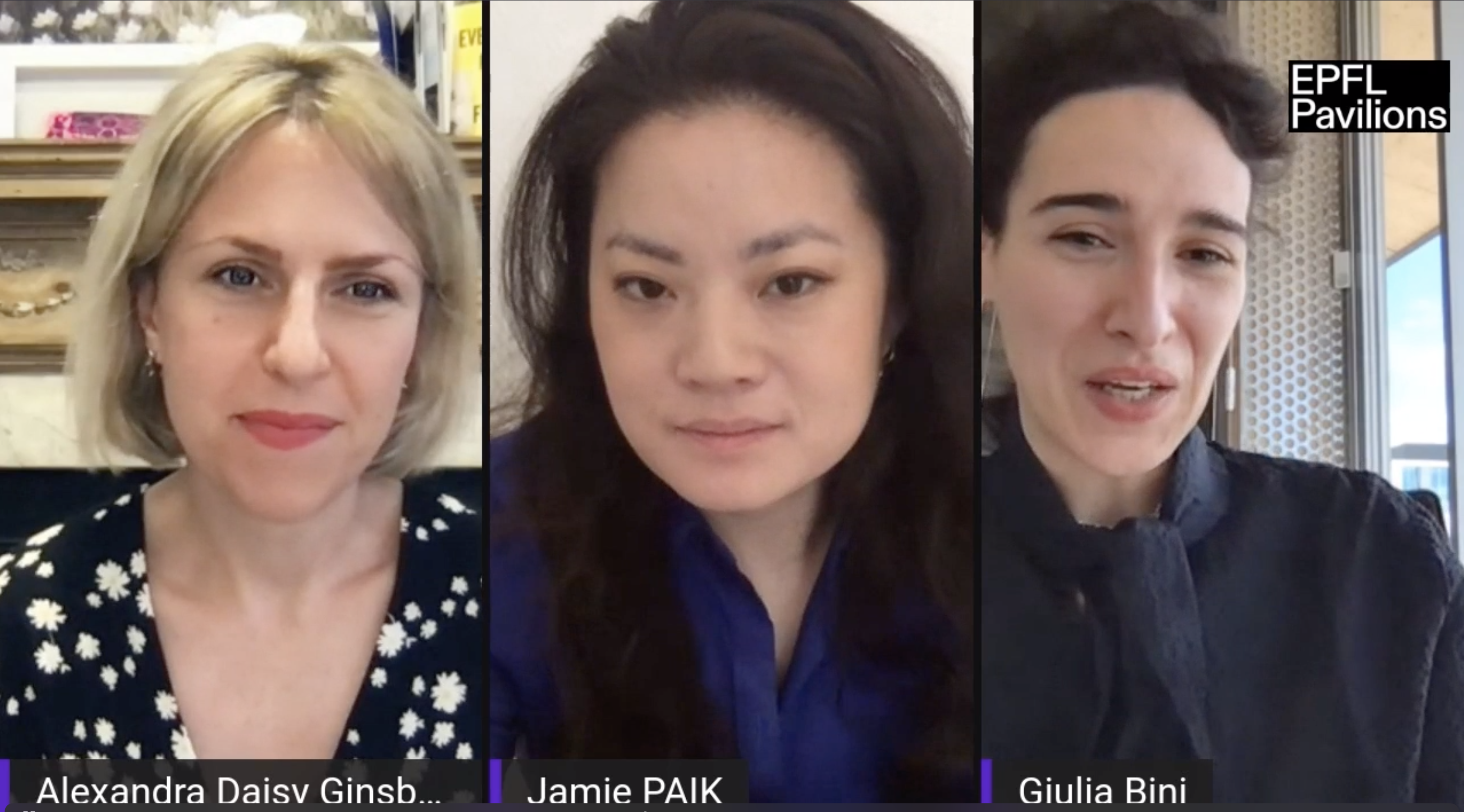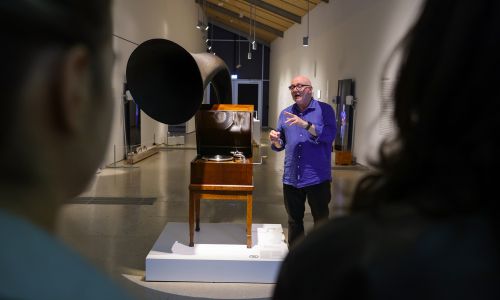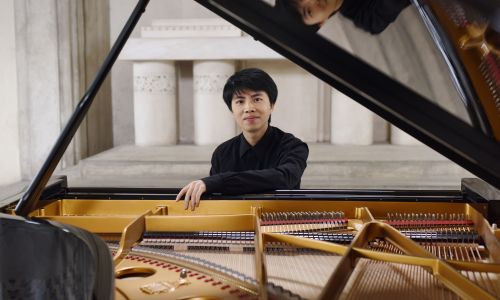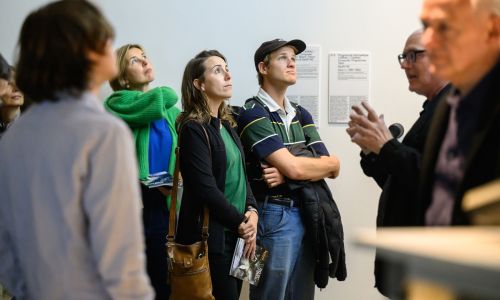Facebook and YouTube
The conversation will be broadcast on our main website header, in this article, and on Facebook and YouTube. The video will premier on Thursday, July 15th, at 6 PM.
Episode 4 - On Design, Environments, Space Exploration and Colonisation
In the universe of the exhibition Nature of Robotics - An Expanded Field, we invite you to join us for “In Conversation”, a live video discussion series with the artists and scientists that have been a part of our terminology-defying exhibition.
For the fourth week of “In Conversation”, this coming Thursday, July 15th at 6 PM CEST, we invite you to join us for a discussion between Nature of Robotics’ curator Giulia Bini with artist Dr. Alexandra Daisy Ginsberg and EPFL Professor Jamie Paik (EPFL, Reconfigurable Robotics Lab).
The conversation will explore the role of design in Ginsberg’s practice - which experimentally engages with the field of synthetic biology, inventing new roles for artists and designers - and in Paik’ novel approaches to Robotics through the development of self-morphing Robogami (robotic origami), and the resulting visions of our complex environments from Earth to Mars.
Join us on Thursday, July 15th, at 6 PM CEST for a conversation that expands beyond technology, automation to bring a new perspective on culture and future scenarios.
Alexandra Daisy Ginsberg
Dr. Alexandra Daisy Ginsberg is an artist examining our fraught relationships with nature and technology. Through artworks, writing, and curatorial projects, Daisy’s work explores subjects as diverse as artificial intelligence, exobiology, synthetic biology, conservation, biodiversity, and evolution, as she investigates the human impulse to “better” the world. Daisy has spent over ten years experimentally engaging with the field of synthetic biology, developing new roles for artists and designers. She is lead author of Synthetic Aesthetics: Investigating Synthetic Biology’s Designs on Nature (MIT Press, 2014), and in 2017 completed Better, her Ph.D. by practice, at London’s Royal College of Art (RCA), interrogating how powerful dreams of “better” futures shape the things that get designed (supervised by Professors Sarah Teasley and Anthony Dunne). She read architecture at the University of Cambridge, was a visiting scholar at Harvard University, and received her MA in Design Interactions from the RCA.
Daisy won the World Technology Award for design in 2011, the London Design Medal for Emerging Talent in 2012, and the Dezeen Changemaker Award 2019. Her work has twice been nominated for Designs of the Year (2011, 2015), with Designing for the Sixth Extinction described as “romantic, dangerous… and everything else that inspires us to change and question the world”. Daisy exhibits internationally, including at MoMA New York, the Museum of Contemporary Art, Tokyo, the National Museum of China, the Centre Pompidou, and the Royal Academy. Her work is in private and museum permanent collections, including the Art Institute of Chicago, the Cooper Hewitt Smithsonian Design Museum, and ZKM Karlsruhe. Talks include TEDGlobal, PopTech, Design Indaba, and the New Yorker Tech Fest. Daisy is a resident at Somerset House Studios, London, and is working on a major new commission for the Eden Project for 2021.
Jamie Paik
Prof. Jamie Paik is founder and director of the Reconfigurable Robotics Lab (RRL) of Swiss Federal Institute of Technology (EPFL) and a core member of Swiss NCCR robotics group. The RRL leverages expertise in multi-material fabrication and smart material actuation for novel robot designs. She received her PhD in Seoul National University on designing a humanoid arm and a hand while being sponsored by Samsung Electronics. This 7-DoF humanoid arm was the lightest in the literature at that time being 3.7kg including the 8-DoF hand. During her postdoctoral positions at the Institut des Systems Intelligents et de Robotic in Universitat Pierre Marie Curie, Paris VI, she developed laparoscopic tools named JAiMY that are internationally patented and commercialized now by Endocontrol-medical.com. At Harvard University’s Microrobotics Laboratory, she started developing unconventional robots that push the physical limits of material and mechanisms. Her latest research effort is in soft robotics including self-morphing Robogami (robotic origami) that transforms its planar shape to 2D or 3D by folding in predefined patterns and sequences, just like the paper art, origami.



